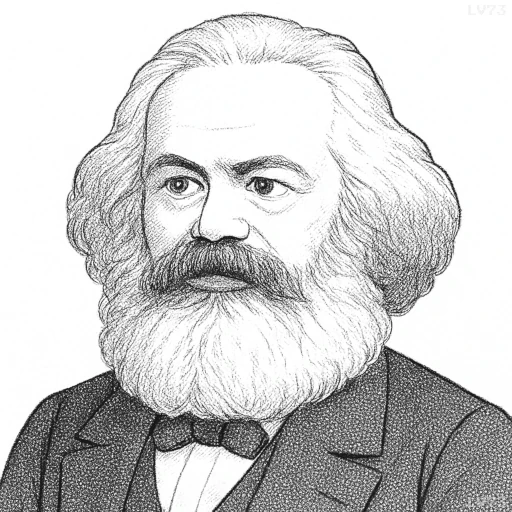“Landlords, like all other men, love to reap where they never sowed.”

- May 5, 1818 – March 14, 1883
- Born in the Kingdom of Prussia (Germany)
- Philosopher, economist, political thinker
table of contents
Quote
“Landlords, like all other men, love to reap where they never sowed.”
Explanation
In this quote, Marx critiques the nature of landownership and the exploitative relationship between the landlords and the working class. By saying that landlords “love to reap where they never sowed,” Marx highlights the inherent injustice in a system where landowners profit from land and its resources without contributing to the actual labor that goes into its cultivation. Landlords collect rent from the tenants or laborers who work the land, but they do not participate in the labor required to produce the crops or goods. Instead, they simply profit from their ownership of land, which is a form of unearned income. Marx’s argument here is that this parasitic relationship allows landlords to accumulate wealth while contributing nothing to the production process.
Historically, Marx saw landlords as part of the broader feudal system (though also present in capitalist systems) that perpetuated inequality. In feudal societies, land was the primary means of wealth, and the relationship between the landowner (the lord) and the serf or tenant was based on exploitation. The serf or tenant worked the land, producing goods, but a portion of that production was taken as rent, leaving the laborer with little to show for their work. In capitalist societies, though the specifics may change, the concept of rent persists, with property owners continuing to profit from the labor of others. Marx viewed this as an example of how capitalist society continues the cycle of exploitation, even as it evolves from feudalism.
In modern contexts, this critique remains highly relevant when discussing property ownership, rental markets, and the broader issue of wealth inequality. Landlords continue to profit from rental income—often in an unproductive or speculative way—while the working class and renters are left to bear the burden of labor. The rise of real estate speculation and rentier capitalism in the 21st century, where landowners and property investors make large profits without contributing to the productive process, highlights the continued relevance of Marx’s critique. This situation further underscores the concentration of wealth in the hands of property owners and investors, while workers who create value through their labor often struggle with high housing costs and economic inequality. Marx’s quote serves as a reminder of the persistent dynamics of exploitation that exist in property-based economies.
Would you like to share your impressions or related stories about this quote in the comments section?


